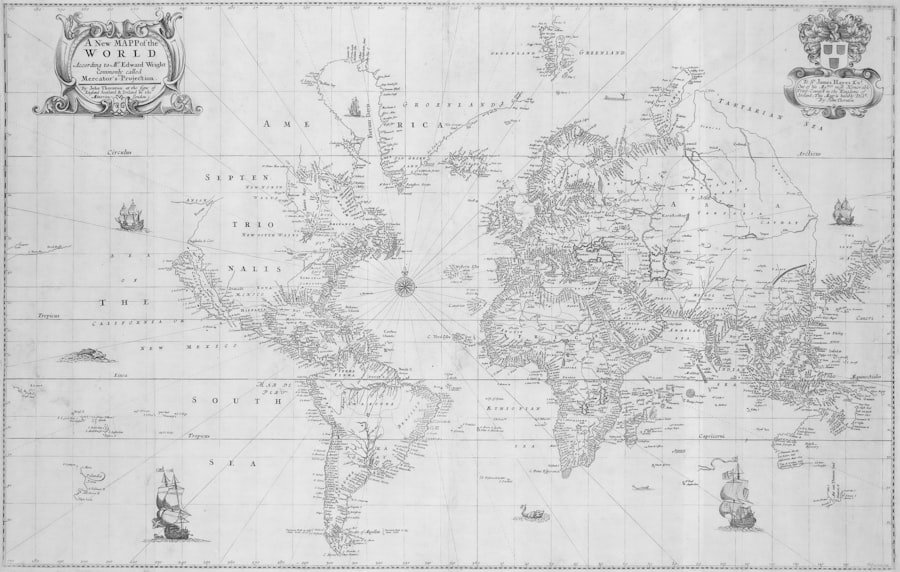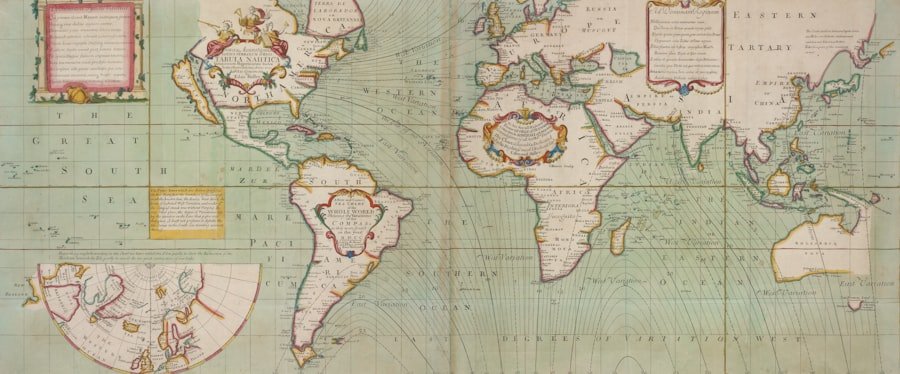Globalization is the process of interaction and integration among people, companies, and governments of different nations, driven by international trade and investment and aided by information technology. It has led to the increased interconnectedness of the world’s economies, cultures, and societies. National sovereignty refers to the authority of a state to govern itself and make decisions without interference from external forces.
The relationship between globalization and national sovereignty is complex and multifaceted, as the forces of globalization can both enhance and challenge a nation’s sovereignty. Globalization has led to increased economic interdependence among nations, as trade and investment flows have become more interconnected. This has resulted in the erosion of traditional notions of national economic policy, as decisions made in one country can have far-reaching effects on others.
Additionally, globalization has led to the spread of ideas and values across borders, challenging the cultural and political sovereignty of nations. As a result, the impact of globalization on national sovereignty is a topic of significant debate and concern among policymakers, scholars, and citizens worldwide.
Key Takeaways
- Globalization has led to a redefinition of national sovereignty, with increased interconnectedness and interdependence among nations.
- Economic globalization has influenced national policy through trade agreements, investment flows, and labor mobility, impacting domestic industries and employment.
- Political globalization has challenged national sovereignty through the rise of international organizations and agreements that require countries to cede some decision-making authority.
- Cultural globalization has led to the spread of ideas, values, and practices, impacting national identity and leading to debates about cultural homogenization versus diversity.
- Environmental globalization has forced nations to address transboundary issues such as climate change, pollution, and resource management, requiring coordinated policy responses.
- Technological globalization has enabled the flow of information and communication across borders, challenging traditional notions of national control and regulation.
- Balancing globalization and national sovereignty requires careful consideration of the benefits and challenges of interconnectedness, and the need for effective governance at both national and international levels.
The Economic Impact of Globalization on National Policy
Adapting to Global Markets
With the increasing interconnectedness of global markets, nations have had to adapt their economic policies to remain competitive and attract foreign investment. This has led to a shift towards more open and liberalized trade policies, as well as a greater emphasis on deregulation and privatization.
Challenges to National Regulation
The rise of multinational corporations has challenged the ability of individual nations to regulate their own economies, as these corporations often operate across multiple borders and are not bound by national regulations. Furthermore, globalization has also led to increased competition among nations for resources, markets, and investment.
A Mixed Impact on National Policy
As a result, the economic impact of globalization on national policy has been both positive and negative, leading to increased economic growth and prosperity in some areas, while also exacerbating inequality and environmental degradation in others.
The Political Impact of Globalization on National Sovereignty

The political impact of globalization on national sovereignty is equally significant, as it has challenged the ability of individual nations to govern themselves without external interference. The rise of international organizations such as the United Nations, World Trade Organization, and International Monetary Fund has led to increased global governance and regulation, which can sometimes supersede the authority of individual nations. Additionally, the spread of democratic ideals and human rights norms across borders has led to increased pressure on authoritarian regimes to reform and democratize.
Furthermore, the rise of transnational issues such as terrorism, climate change, and migration has required nations to work together to address these challenges, often at the expense of their own sovereignty. This has led to increased cooperation and coordination among nations, but also raised concerns about the loss of autonomy and self-determination. As a result, the political impact of globalization on national sovereignty has led to a reevaluation of traditional notions of statehood and governance, as nations grapple with the complexities of an increasingly interconnected world.
The Cultural Impact of Globalization on National Identity
The cultural impact of globalization on national identity is perhaps one of the most visible and contentious aspects of the globalization-national sovereignty relationship. The spread of Western culture through media, technology, and consumer products has led to concerns about the homogenization of global culture and the erosion of traditional cultural identities. Additionally, the rise of global migration and diaspora communities has led to increased cultural diversity within nations, challenging traditional notions of national identity.
Furthermore, the spread of ideas and values across borders has led to increased cultural exchange and hybridization, as nations adopt elements from other cultures into their own. This has led to both positive outcomes such as increased tolerance and understanding, as well as negative outcomes such as cultural appropriation and conflict. As a result, the cultural impact of globalization on national identity has led to a reevaluation of what it means to be a nation in an increasingly interconnected world.
The Environmental Impact of Globalization on National Policy
The environmental impact of globalization on national policy is another critical aspect of the globalization-national sovereignty relationship. The increasing interconnectedness of global markets has led to increased exploitation of natural resources and environmental degradation in many parts of the world. Additionally, the rise of global supply chains has led to increased carbon emissions and pollution, as goods are transported across long distances.
Furthermore, the rise of multinational corporations has challenged the ability of individual nations to regulate their own environmental policies, as these corporations often operate across multiple borders and are not bound by national regulations. This has led to a race to the bottom in terms of environmental standards, as nations seek to attract investment by offering lower costs and fewer restrictions. As a result, the environmental impact of globalization on national policy has been both positive and negative, as it has led to increased economic growth and prosperity in some areas, while also exacerbating environmental degradation in others.
The Technological Impact of Globalization on National Sovereignty

The technological impact of globalization on national sovereignty is perhaps one of the most transformative aspects of the globalization-national sovereignty relationship. The rise of information technology and digital communication has led to increased interconnectedness among people around the world, challenging traditional notions of national borders and boundaries. Additionally, the rise of global platforms such as social media and e-commerce has led to increased transnational communication and exchange.
Furthermore, the rise of cyber warfare and digital espionage has challenged the ability of individual nations to protect their own security and sovereignty in an increasingly interconnected world. This has led to increased concerns about data privacy and national security, as nations grapple with the complexities of an increasingly digital world. As a result, the technological impact of globalization on national sovereignty has led to a reevaluation of traditional notions of territoriality and governance in an increasingly digital age.
Balancing Globalization and National Sovereignty
In conclusion, the relationship between globalization and national sovereignty is complex and multifaceted, as the forces of globalization can both enhance and challenge a nation’s sovereignty. The economic impact of globalization on national policy has led to a reevaluation of traditional economic strategies and policies, while also exacerbating inequality and environmental degradation in some areas. The political impact of globalization on national sovereignty has challenged the ability of individual nations to govern themselves without external interference, leading to increased global governance and regulation.
The cultural impact of globalization on national identity has led to concerns about the homogenization of global culture and the erosion of traditional cultural identities, while also leading to increased cultural exchange and hybridization. The environmental impact of globalization on national policy has led to increased exploitation of natural resources and environmental degradation in many parts of the world, while also exacerbating environmental degradation in others. The technological impact of globalization on national sovereignty has led to increased interconnectedness among people around the world, challenging traditional notions of national borders and boundaries.
In light of these complexities, it is clear that balancing globalization and national sovereignty is a critical challenge for policymakers around the world. While globalization has brought about many positive outcomes such as increased economic growth and cultural exchange, it has also raised concerns about inequality, environmental degradation, and loss of autonomy. As a result, it is essential for nations to work together to address these challenges while also preserving their own sovereignty and autonomy in an increasingly interconnected world.
Only through cooperation and coordination can nations navigate the complexities of an increasingly globalized world while also preserving their own unique identities and values.
If you’re interested in learning more about the impact of globalization on national sovereignty and policy, you should check out The Econosphere’s blog. They have a variety of articles that delve into this topic and provide insightful analysis. One article in particular that you might find interesting is “The Role of International Organizations in Shaping Global Policy.” You can read it here. The Econosphere is a great resource for staying informed about the intersection of economics, politics, and globalization.
FAQs
What is globalization?
Globalization refers to the increasing interconnectedness and interdependence of countries through the exchange of goods, services, information, and ideas. It is driven by advancements in technology, communication, and transportation, allowing for greater integration of economies and societies on a global scale.
How does globalization impact national sovereignty?
Globalization can impact national sovereignty by diminishing the ability of individual countries to fully control their own economic, social, and political policies. This is due to the increased influence of international organizations, multinational corporations, and global financial markets, which can limit the autonomy of nation-states in making decisions that affect their citizens.
What are some examples of how globalization affects national policy?
Globalization can influence national policy in various ways, such as through trade agreements that require countries to adhere to certain standards and regulations, the movement of capital and labor across borders, and the spread of global norms and values that may impact domestic laws and regulations.
What are the benefits of globalization on national sovereignty and policy?
Globalization can bring benefits to national sovereignty and policy by providing access to new markets, technologies, and ideas, as well as promoting economic growth and development. It can also create opportunities for collaboration and cooperation between countries to address global challenges such as climate change and public health.
What are the challenges of globalization on national sovereignty and policy?
Challenges of globalization on national sovereignty and policy include the potential loss of control over domestic economic and social policies, the risk of increased inequality and exploitation, and the difficulty of balancing global interconnectedness with the need to protect national interests and values.








